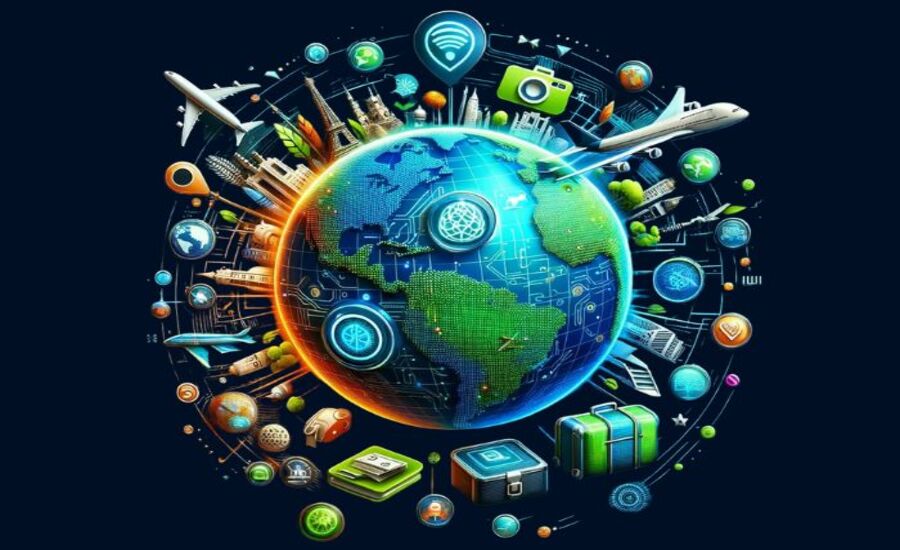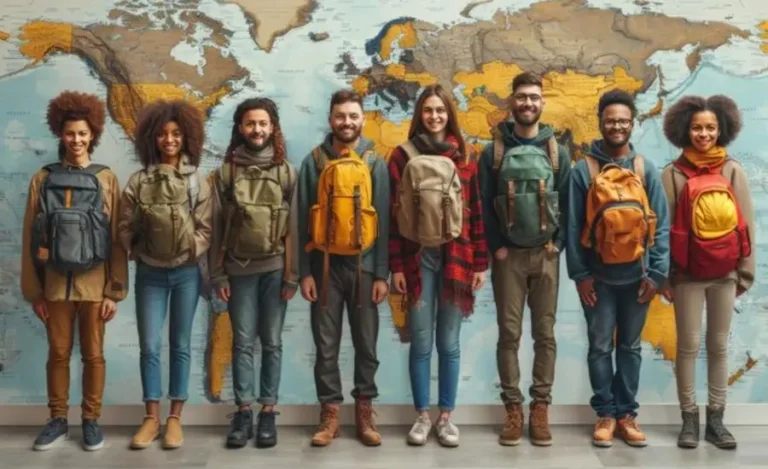AI and Travel Planning: Your New Companion Along the Way
Why AI is the Greatest Travel Planner You Never Knew You Needed
Suppose it’s a rainy Friday afternoon, and all of a sudden you have this endless urge to have yourself lying on some sun-drenched sandy beach. The thought that now you have to sit before the computer, comparing flights, finding the right hotel, and planning activities, sends you right back to bed. Well, been there, done that. What if I told you there’s another way around it-make it way easier, quicker, and even fun?
Let AI be your new BFF to plan the most perfect trip ever.
Age of AI in Travel
It’s no longer a word of the future, but it is here, changing the way we do everything from ordering groceries to managing finances. Now it has made this process of planning travel so effortless. Those days of continuous browsing through websites, juggling multiple tabs, and trying to put together an itinerary are long gone. AI does it all. As a matter of fact, it’s such a pro at it that you tend to wonder how you ever managed without it.
Take sites like Hopper for example. This site uses AI to analyze millions of flight prices daily. Ever see that notification pop, telling you to book now because the prices are about to rise? That is AI working at the back, showing you predictions when the cost of your dream flight is going to drop or spike. And many times, it is right.
But AI isn’t just about a good deal on airfare. It’s about carving up an entire travel experience for you. Whether you’re the budget, luxury, or anything in between, AI can take those preferences, learn from them, and craft an itinerary that’s tailor-made for you, fitting for a personal concierge.
The Magic Behind AI: How It Works
How does AI cast this magic over travel planning? It’s all about data, volumes of it. First, the algorithms analyze patterns and preferences, learning from the millions of travellers who have booked before you. They sift through endless information from hotel reviews to weather patterns and distill it down into bite-sized recommendations.
Let’s say you want to explore Japan but don’t have any idea where to start. AI-based apps like TripHobo take your budget, travel dates, and interests and suggest the best places to visit, how to reach them, and even what to eat. As a matter of fact, you get a personalized guide that truly fits your style, saves time and energy, and of course, the inevitable stress of last-minute planning.
Honestly, planning travel is such a pain. Between finding the right flights and comparing accommodations, sometimes it feels like one needs to study for a logistics degree just to put it all together. AI takes that burden off your shoulders and lets you focus on the fun parts-like which beachfront café has the best cocktails.
Real-Life Examples of AI in Action
Because it is now time to talk of real-world examples; after all, the theory is great, but we want to see this into practice, right? Meet Sarah from New York: Sarah loves to travel, but her busy job as a marketing executive leaves little time to be spent on planning vacations. Enter Pana AI-powered travel assistant. Sarah used Pana to plan her dream vacation to Italy. All she had to do was tell the app what she liked: local culture, good food, and not too touristy. Minutes later, Pana had mapped out an itinerary for Florence, Rome, and the Amalfi Coast, with boutique hotels, restaurants off the beaten path, and locals who give wine tours. And the best part? Sarah didn’t lift a finger.
Then there is David, a software engineer from San Francisco. He used Hopper to book his flights to Thailand for a surf trip. Hopper analyzed millions of flight prices and predicted the perfect time for David to save him over $200 on his round-trip flight. In fact, David didn’t even need to set up an alert; Hopper basically told him when the price had hit bottom.
Last but not least, there’s Nisha from London, who blogs about travel. She is always on the lookout for unique experiences and harnesses Airbnb’s AI-powered platform to find a treehouse in Bali. The AI learned her preferences over time, suggesting stays that fit her desire to live off the grid. She even found a local cooking class that wasn’t on her radar; thanks to the recommendation engine, she was able to find it on the platform.
These examples represent how AI is making travel more accessible and tailored, regardless of one’s travel style or destination.
AI’s Human Touch: The Emotional Side of Travel
Now, you might be saying to yourself, “Okay, all this AI stuff sounds well and good, but isn’t travel supposed to be a deeply human experience?” And quite rightfully so. It is about discovering new cultures, and people, and creating memories. But here’s the beauty of AI: it really enhances the human side of travel rather than replacing it.
Imagine coming into a new city and having an AI-powered chatbot like HelloGbye help you find the best of the local spots that are tailored to your interests. It’s like having a local friend in every city. You’re still making the decisions, and still having the experiences – the AI just guides you along the way.
And then, of course, there’s sustainability. As travelers, we are increasingly concerned about our impact on the planet. Again, AI can help. Apps like Smartvel offer eco-friendly travel recommendations in example, offering public transport over taking a taxi or encouraging guests to stay in sustainable accommodations. That way, you’re still having your holiday, yet you’re making better, kinder choices for the Earth, too.
The Future of AI in Travel: What’s Next?
Going forward, AI is going to get only smarter. We are already seeing AI assistants like Google’s Bard and ChatGPT help people with the planning of an entire trip with a few prompts of a conversation. In the future, we will see even closer integrations. Imagine AI recommending destinations based on your mood or guiding you through travel restrictions without having to Google every new regulation.
We’re also likely to see AI make travel more inclusive. For instance, accessible accommodations and transportation options can already be discovered through the use of AI-powered applications for people with disabilities. As AI continues to evolve, it will meet the needs of even more diverse groups so that the magic of travel can be available to all.
The Bottom Line: AI and You
What does all that mean for you? In a nutshell, AI is revolutionizing the way we travel: making the planning easier, the trips more personalized, and the travel experiences richer. And while it’s not a replacement for human curiosity or spontaneity, it’s the tool that will enable you to focus on what really matters: enjoying the journey.
Whether it’s a weekend getaway or that once-in-a-lifetime adventure, AI has got your back. The next time you dream of that perfect vacation but really don’t want to go through the hassle, just remember that a new travel buddy is just a few clicks away.
And who knows? Maybe your next big adventure will be as simple as telling an AI exactly what you want and then watching as it brings your travel dreams into reality.






